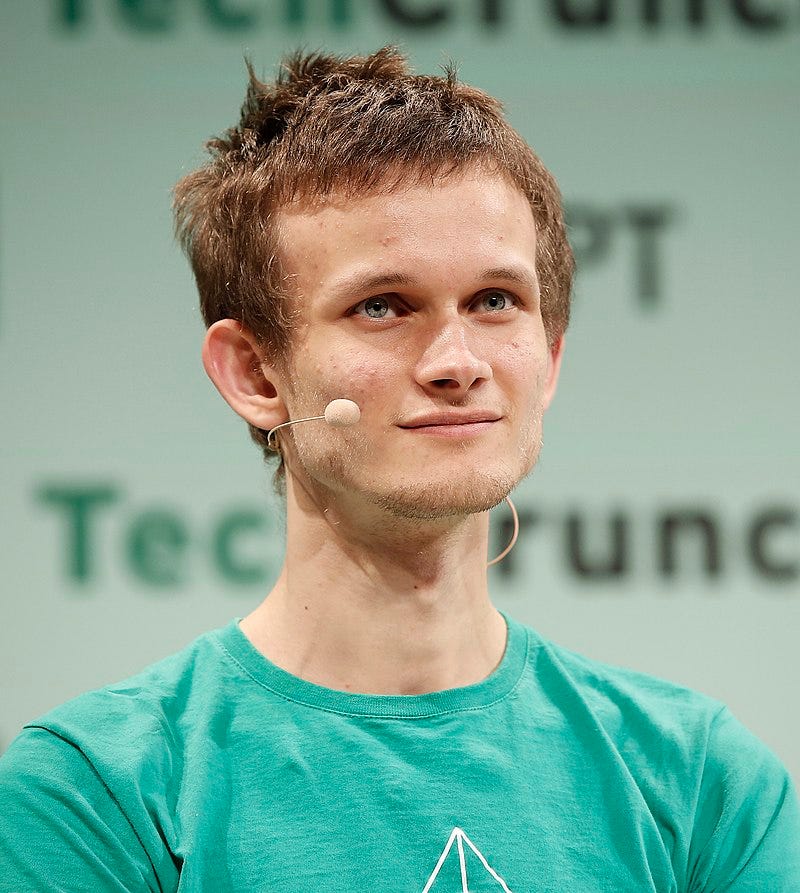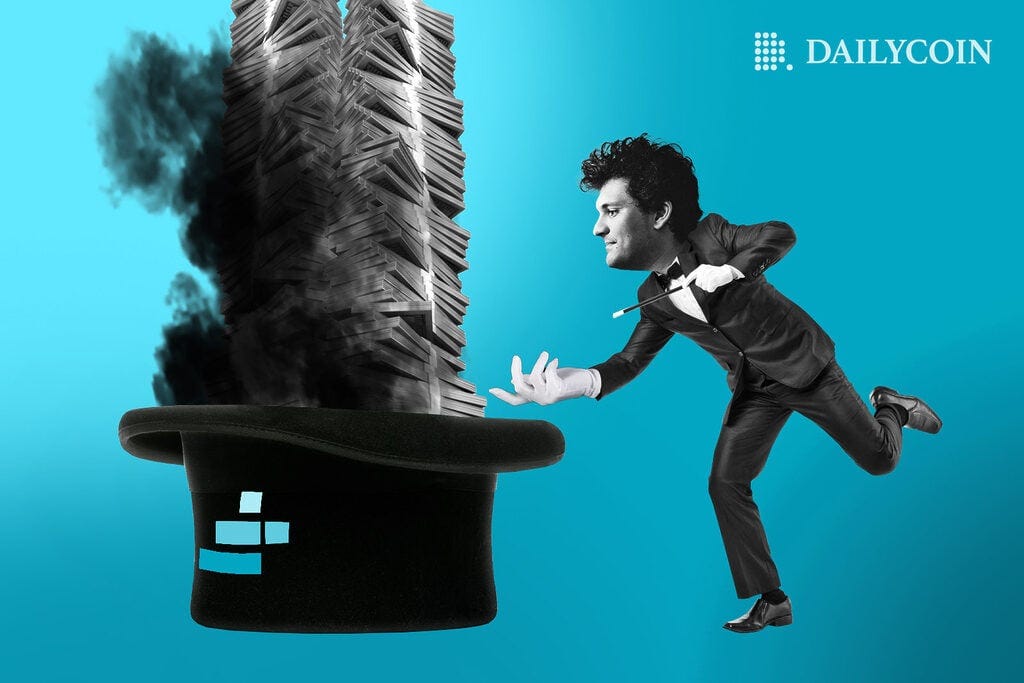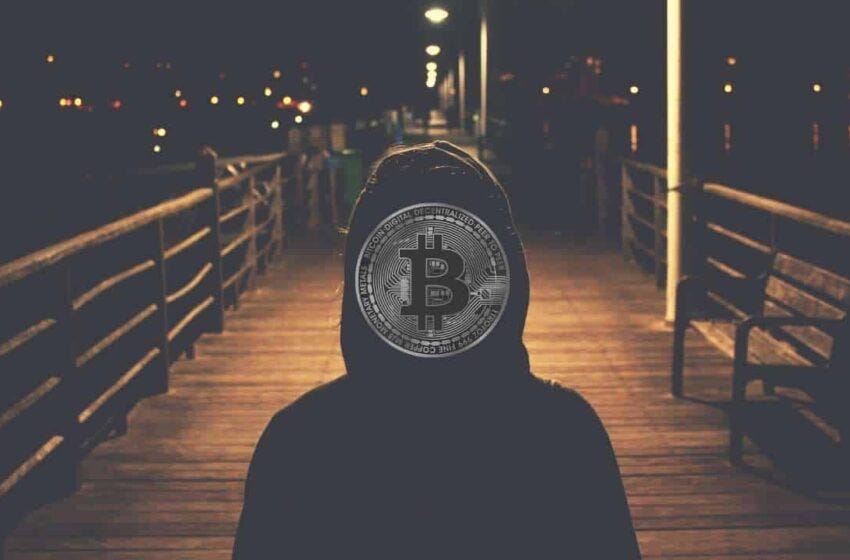Sam Bankman-Fried's Fall from Grace
Sam Bankman-Fried's Fall from Grace
The Magical, Mystical Gurus of Crypto/Bitcoin and All They Promise
First of all, I don’t like to say, “I told you so,” but, okay, maybe I do. Back in May, I wrote about the 8 confirmed suicides tragically connected with the downfall of Luna and Terra. Over the past year, I’ve been writing extensively on the topic of bitcoin and cryptocurrency, some of which I will reference here.
This week we witnessed the downfall of one of cryptocurrency’s shining stars, 30-year-old FTX founder, Sam Bankman-Fried (SBF).
Between $1 billion to $2 billion (so far) in client money has gone “missing” through a “back door.”
On Thursday, SBF confessed: “I f**ked up,” in a lengthy Twitter thread, apologizing to investors and customers of FTX, the exchange platform he founded in 2019.
According to Markets Insider “Binance was in talks to takeover FTX, but the deal fell apart less than 24 hours after Binance began its due diligence.”
On Friday, The Wall Street Journal reported that FTX and its associated companies was facing an $8 billion shortfall. Overnight, SBF’s personal fortune was wiped out to the tune of $14.6 billion.
For this, SBF is “shocked”, he admits he should have given more “clarity” but his “hands were tied.”
You get the idea. There seems to be a few pleas for “amnesty” going on these days, and not just about the pandemic.
Some people, like Galaxy Digital CEO Mike Novogratz, are comparing FTX to biotech start-up Theranos. “You know, we basically have a situation that looks like Theranos,” he said. And "Does it feel illegal? We'll see. It certainly seems immoral.” Theranos founder, Elizabeth Holmes, was convicted of fraud earlier this year after her company, once valued at $9 billion, collapsed when it was discovered that its Edison blood-testing machines never actually worked.
According to The Wall Street Journal, “it appears that FTX took billions of dollars’ worth of money and loaned it out to its sister firm, Alameda, to fund high-risk bets.”
Bloomberg columnist Matt Levine describes it in a way I like because magic is what it’s all about: “FTX took its customers’ money and traded it for a pile of magic beans, and now the beans are worthless.”
I remember reading articles about SBF. He was really different. He was called “the world’s most generous billionaire.” He liked to say his purpose in life was to “make money to give money.”
Well, that didn’t turn out to be true.
The team of FTX Future Fund, one of the exchange giant’s philanthropic arms, wrote that they were “devastated that it looks like there are many committed grants that the Future Fund will be unable to honor.”
Odd since their website says,
“Let’s Build a Flourishing Future.”
Ironically, FTX Future Fund represents everything the “Build Back Better” agenda approves of:
It has “donated to health, pollution and climate initiatives. The FTX Future Fund has supported moonshot projects in fields like biosecurity and A.I. safety focused on ‘long-term improvements for humankind.’ In March, FTX said it was going to deploy $1 billion through the Future Fund at a rate of $100 million a year.”
Plus, SBF was the second biggest donor to the Democrat Party behind George Soros. He will be sorely missed. Or maybe not. Usually companies like that get bailed out by the government when they're in trouble, but his didn't. Hmm, maybe there's more to this than meets the eye. There usually is.
It gets better. According to Coindesk, back in March, Ukraine Partnered With FTX, Everstake to Launch a New Crypto Donation Website, turning “bitcoin into bullets, bandages and other war materiel.”
“The country's collective efforts have already raised some $48 million in bitcoin (BTC), DOT, ether (ETH), SOL, tether (USDT) and other cryptocurrencies, according to the website. Other estimates place the amount closer to $100 million, but totals vary with market swings and exactly which websites are included.”
Exactly how much money was being raised and where it went, that's murky. But don't worry, it was all for a good cause (money laundering?).
Big, beautiful dreams, up in smoke. As impossible to achieve, as murky and ill-conceived, as the entire “green energy” and “health & safety” cons that billions of people are eagerly buying into around the world.
“We are so sorry that it has come to this,” the letter continued. “To the extent that the leadership of FTX may have engaged in deception or dishonesty, we condemn that behavior in the strongest possible terms. We believe that being a good actor in the world means striving to act with honesty and integrity.”
Bankman-Fried has now resigned as CEO of FTX and the firm is filing for bankruptcy.
There are now over 10,000 active cryptocurrencies in existence.
Many of these are known for their “pump-and-dump” or “rug-pull” scams. The scammers make money for themselves while taking advantage of investors.
CNET describes one such example:
Last month, a group began selling coins based on the hit Netflix show, Squid Game. The $SQUID coin had no ties with the show or Netflix but that didn't stop many from jumping on the hype train causing the value from one penny to $2,800 and then free-fall back down to pennies minutes later. This resulted in the scammer making $2 million while those who purchased the coin lost money.
If you want to learn more, I encourage you to read Cryptocurrency pump-and-dump schemes: What you should know about these scams.
Now, am I the only one noticing a pattern here?
I know what I’m saying might not be popular with a lot of people who have invested into bitcoin/cryptocurrency. And I would be the first to congratulate you if you have made money or feel good about your interactions. This is a warning to keep in the back of your mind. If you’ve read my previous essays on the topic, you won’t be surprised by my stance.
At the head of the leading cryptocurrency giants there most often seems to be a charismatic, eccentric guru. At some point in recent history, each one of those gurus waved a magic wand and poof, their “product” came into being and they generously offered it to you and me. Of course, they kept a large portion for themselves, that’s only natural.
Here are a few of the top gurus—or what I like to call the “televangelists” of the 21st century.
BITCOIN founder SATOSHI NAKAMOTO
Bitcoin definitely stands out since it was the first and could be merged in some way with government CBDCs. Enthusiasts speak of the bitcoin and its founder in almost messianic terms. It is seen as the antithesis of the Central Bank Digital Currency (CBDC) governments are hellbent on ushering in. Certain buzzwords are repeated– decentralization, frictionless, borderless, equitable, democratization.
To quote my essay Bitcoin: The Dirty Business of Clean Energy:
A shadowy figure by the name of Satoshi Nakamoto is credited with penning the original Bitcoin whitepaper and with inventing Bitcoin itself, minting the first Bitcoin. This person (or group of persons) remained elusively in the shadows, offering advice to followers in cryptic messages like a guru communicating from the cloud. The last correspondence with Nakamoto was in 2010, in an email to another crypto developer saying that he/they had (cryptically) "moved on to other things."
Investopedia noted that: “It is estimated that the value of bitcoins under Nakamoto's control—which is thought to be about 1 million in number—may exceed $50 billion in value. Given that the maximum possible number of bitcoins generated is 21 million, Nakamoto's stake of 5% of the total bitcoin holdings has considerable market power.”
Block’s JACK DORSEY
“Bitcoin changes absolutely everything,” Dorsey said, back in June 2021. “I don’t think there is anything more important in my lifetime to work on.”
In 2018, he predicted that bitcoin will eventually become the world’s single currency and in 2020, his company Square purchased about $50 million in bitcoin.
Recently, Dorsey left Twitter to devote his life to Square, or what is now known as Block. In a move that shows his lighter side, Dorsey says he is not the CEO, but the “Block Head.” Dorsey and Block deserve an entire essay all to themselves. It’s a fascinating duo and I cannot delve into it as deeply as it deserves here.
Within Block is a developer platform focused on Bitcoin called TBD54566975, or TBD. Naturally, the name itself set off a flurry of speculation within the Bitcoin community. What does it mean, everyone wanted to know? Theories abounded. Suffice it to say, this fed into the mystique already surrounding Bitcoin.
Talking about amnesty, back in January 2021, before Dorsey became the “Block Head” as he calls himself now and when he was still “Head Twit” (as Elon Musk calls himself), his Twitter Policy people Tweeted this:
Ahead of the Ugandan election, we're hearing reports that Internet service providers are being ordered to block social media and messaging apps. We strongly condemn internet shutdowns – they are hugely harmful, violate basic human rights and the principles of the #OpenInternet
To which many people replied like Sarah A. Downey:
The context in which you're making this tweet is one of the most hypocritical stances I've seen on free speech possibly ever
Because, of course, anyone who disagreed with Dorsey’s liberal stance or was spreading mis/disinformation was being silenced on Twitter. I know, I got permanently banned myself.
MicroStrategy’s MICHAEL SAYLOR
“Bitcoin is elegantly engineered to overcome the limitations of gold.” - Michael Saylor
Saylor is an MIT graduate and the cofounder and CEO of the business intelligence firm MicroStrategy. He calls Bitcoin “freedom,” and “the most universally desirable property in space and time.” Described as a “bitcoin evangelist,” at Bitcoin Miami, 2022, he instructed thousands of cheering fans to never sell their crypto.
ETHEREUM cofounder VITALIK BUTERIN

Perhaps the most creative guy of all, would be Buterin. The inspiration for his Soulbound tokens came from “the first ever tabletop roleplaying game set in the Warhammer Age of Sigmar, one of the most exciting fantasy settings ever created.”
It gets creepy, though. The actual term Soulbound refers to a “blood contract between a Shaman and their Shikigami that permits them to match Soul Wavelengths.”
Here’s how Cubicle7 games describes Soulbound, set in the Warhammer Age of Sigmar:
To be Soulbound is to have your essence entwined with others, binding your souls together. Becoming Soulbound is a phenomenally painful process, one which not everyone survives. Those that do are bound together, their souls linking to create a powerful tether or conduit that allows them to draw upon each other’s essence, protecting them from the servants of Nagash, the God of Death.
While there are Soulbound all across the Mortal Realms, each binding is made up of only a handful of individuals. These smaller groups work covertly, slipping into places unnoticed where other servants of Order may not.
And finally, HEX founder, RICHARD HEART
Yes, with this one, I’m definitely having flashbacks to the tele-evangelists of old. He likes to flaunt his bling like this Twitter post says:
$26,870 #dior fit $15,000 gun holster $6,500 jacket $1,250 shoes $990 shirt $590 cap $590 bracelet $1,950 #Prada pants
Heart boasted: “Since everyone else promoted luna, celsius, ftx or a variety of other scams you might want to listen to just me. Or they told you bitcoin would be 150k this year. Etcetera, etcetera. Maybe just stop listening to everyone else... I was right, they were wrong, about near everything.”
I don’t know. All of these gurus are so different, it’s hard to decide which one to follow. Maybe none.
That’s all I’ve got for now. I am sure more dramas will be forthcoming as the battle between decentralization and government CBDCs heats up. This is exactly what is needed to justify a centralized government controlled CBDC.
That’s what I’m writing about now.







Comments
Post a Comment